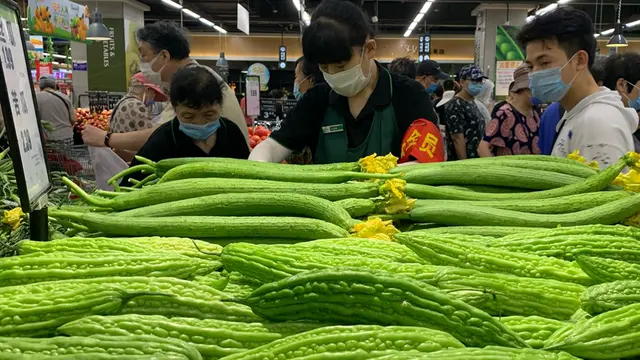02:23
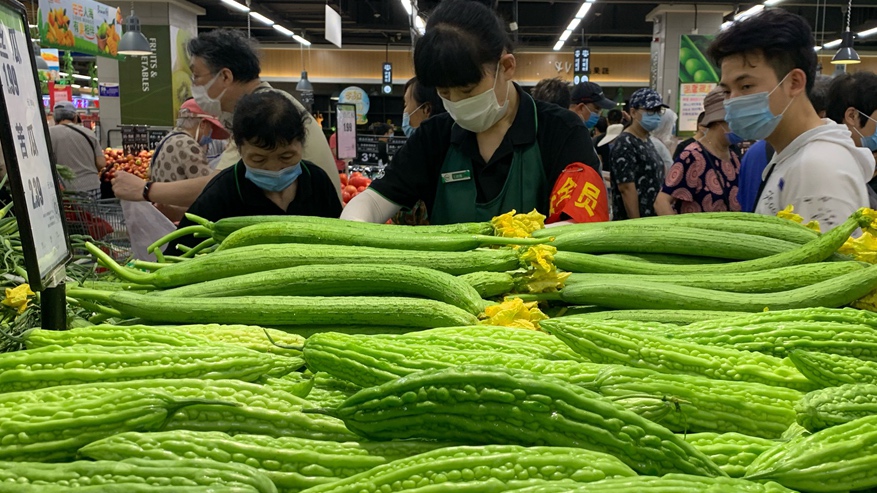
Beijing is on high alert after a cluster of new COVID-19 cases were found to be linked to Xinfadi, a major wholesale market that makes up 80 percent of Beijing's entire farm produce supply
The market was shut down early Saturday morning, triggering questions of the potential impact on the city's food supply
With this question, CGTN reporters visited Yonghui, one of biggest chain supermarkets in Beijing.
The manager here said there was panic buying on Saturday afternoon because of fear, but that only happened in a few of its 46 major branches across the city.
In fact, like most other supermarkets, they all have alternative and direct supply channels, in addition to Xinfadi.
"Even yesterday, there was an ample supply of fresh vegetables until late at night in our store. This morning, we still have plenty of vegetables, fruits and meat. So there is no need at all to buy too many of these foods," said a Yonghui managerin Tongzhou District where the Beijing municipal government is located.
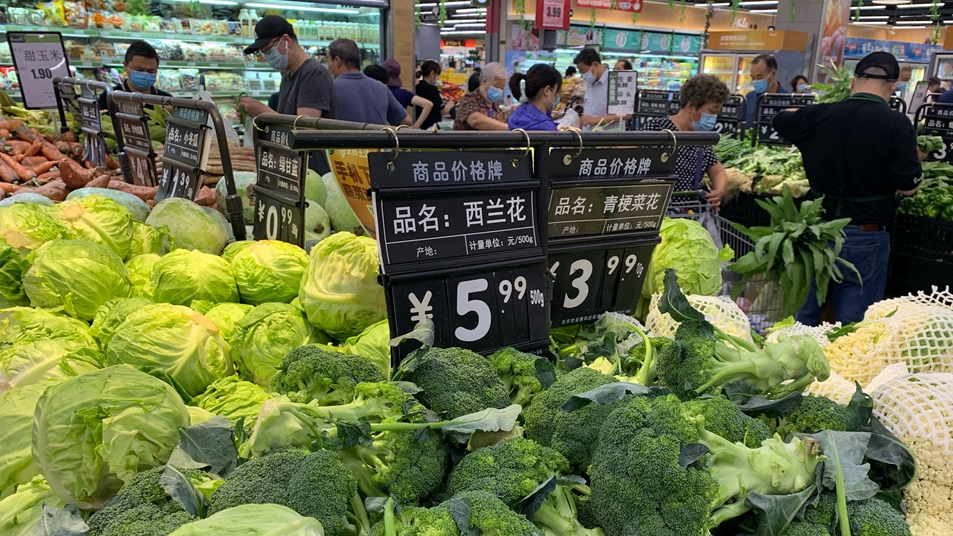
Ample supply of vegetables, fruits and meat with stable prices in a chain supermarket with 46 major branches in Beijing, June 14. Zheng Yibing /CGTN
So, have there been a surge in prices?
"The price, from my view, is at the same level as before in the supermarkets, but outside in some stores it's a bit higher," a customer said.
"The newly confirmed cases would definitely have a psychological effect on people. But I don't think it will become a big deal and I don't think it will really affect the food supply," another commented.
The authorities have taken measures to ensure the supply logistics and to prevent price gouging in stores and other whole markets.
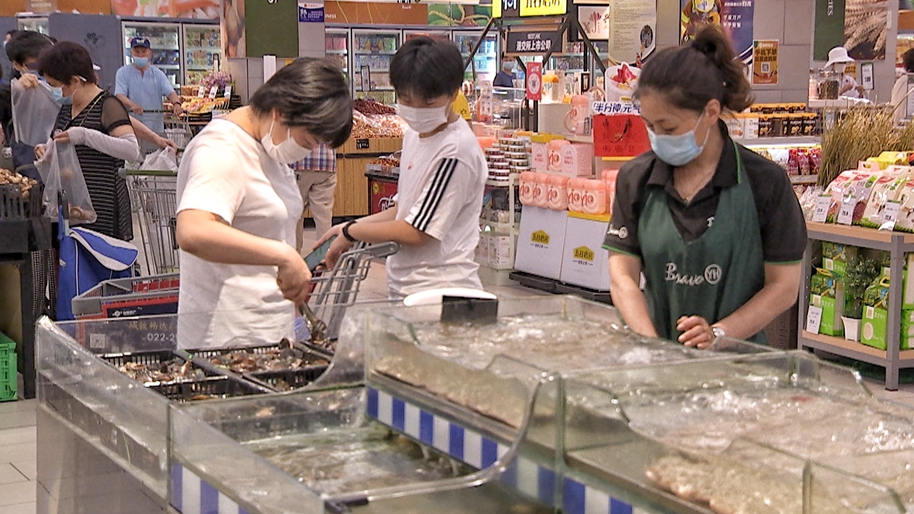
Seafood counter in supermarkets has few buyers in Beijing and imported salmon was removed from the shelves due to its possible link to the new COVID-19 cases in the city, June 14. Zhao Jing /CGTN
"Xinfadi was sealed yesterday, but local products like peaches, grapes, apricots and watermelons are in ample supply. So there is no big influence and the price is stable," said Mao Lianfeng, a fruit seller in Baliqiao Wholesale Market, also in Tongzhou District.
On Saturday, a thorough epidemic prevention inspection was conducted in markets across the city. It's aiming to leave no loopholes behind.
Imported seafood products like salmon were removed from markets because coronavirus was said to be found on one cutting board that was used to handle imported salmon in Xinfadi.
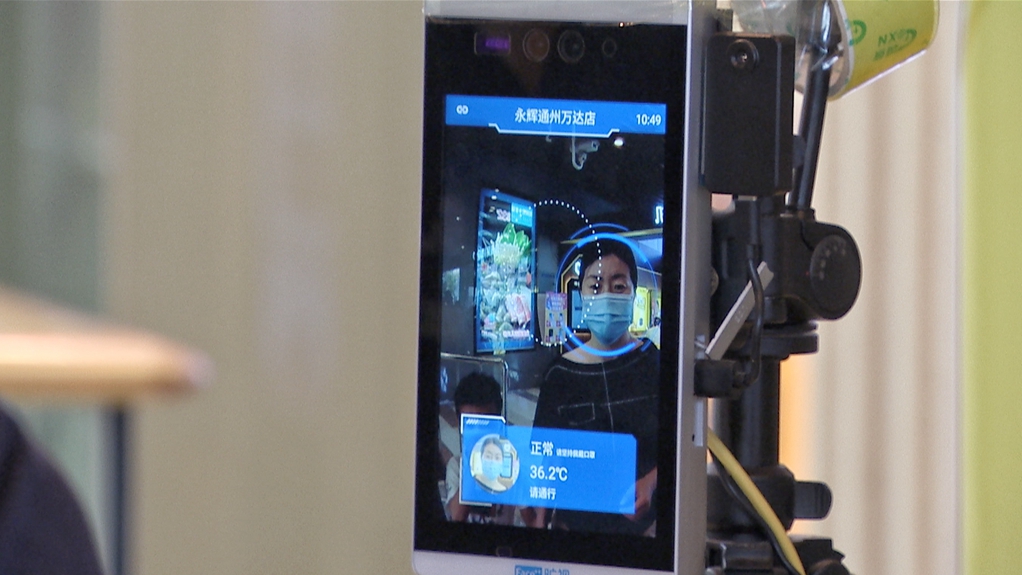
Emergency response level in many public places in Beijing has been upgraded this weekend. Zhao Jing /CGTN
Like others, staff in all 46 Yonghui superstores, especially those working at the seafood counter received nucleic acid tests. And so far, none were found positive in the test.
The emergency response level in the stores and in most public places in the city has been upgraded from level three to level two.
The streets are much less crowded this weekend due to the newly confirmed COVID-19 cases in Beijing. And many say that with the virus still around, they need to keep vigilant and take all necessary precautions.
(Cover image: Vegetables displayed in a chain supermarket in Beijing, June 14. Zheng Yibing /CGTN)
 简体中文
简体中文

